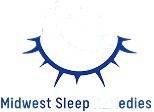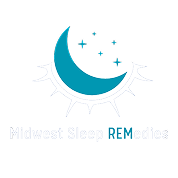Have you ever experienced a restless night filled with snoring, gasping for air, or a sudden burning sensation in your chest? You might assume it’s just due to overeating, stress, or a heavy meal before bed. However, these symptoms could be signaling something more serious, a possible link between sleep apnea and gastroesophageal reflux disease (GERD).
Sleep apnea and GERD are distinct conditions. However, most people don’t realize that these conditions can occur together. Furthermore, sleep apnea and GERD might seem unrelated, but there is a strong relationship between them.
In this blog, we’ll break down the hidden relationship between sleep apnea and GERD, explore their shared risk factors and symptoms, and provide tips to help you manage both for better sleep and overall health.
Key Takeaways:
- Sleep apnea and GERD are distinct health conditions, but they are closely connected through physiological mechanisms.
- GERD with apnea can lead to airway irritation, making breathing interruptions more frequent and severe.
- Treating one condition can help manage the other condition.
- Lifestyle changes, such as weight loss, sleeping on your left side, and avoiding late meals, can significantly ease symptoms of both conditions
Understanding Sleep Apnea and GERD
What is Sleep Apnea?
Sleep apnea is a sleeping disorder in which your sleep is interrupted due to repeated pauses in breathing. These interruptions start and stop multiple times throughout the night, even without you realizing it.
Sleep apnea has three main types:
- Obstructive Sleep Apnea (OSA): Caused by blocked airways due to relaxed throat muscles.
- Central Sleep Apnea (CSA): It happens when the brain doesn’t send proper signals to the breathing muscles. There’s no physical blockage.
- Complex Sleep Apnea: A mix of both OSA and CSA. It may appear during treatment for OSA, especially with CPAP therapy.
Among them, obstructive sleep apnea (OSA) is the most common. When we sleep, the muscles around the throat relax slightly. The airways remain open, allowing air to move in and out of the lungs easily. However, in OSA, the muscles at the back of the throat over-relax during sleep, causing the airway to become partially or fully blocked. This blockage interrupts normal breathing and ultimately leads to poor sleep quality.
What is GERD (Gastroesophageal Reflux Disease)?
Gastroesophageal Reflux Disease (GERD) is a chronic digestive condition in which stomach acid flows backward into the esophagus. This backward movement is known as acid reflux.
This condition occurs because of the dysfunction of the lower esophageal sphincter (LES). LES is a muscular ring that is located at the bottom of the esophagus, connecting the esophagus and the stomach.
Additionally, it prevents stomach acid from flowing back into the esophagus. However, in GERD, the LES becomes weak or doesn’t work properly. As a result, it allows stomach acid to reflux and escape from the stomach, back into the esophagus.
This backflow can lead to symptoms such as:
- Heartburn
- Chest discomfort
- Sore throat
- Inflammation of the esophagus
Now that we have a better understanding of sleep apnea and acid reflux (GERD), let’s move on to how these two conditions are connected.
How Are Sleep Apnea and GERD Connected?
You might be thinking, “Can acid reflux cause sleep apnea?” or “Does sleep apnea trigger acid reflux?” Surprisingly, it can go both ways. Research shows a strong link between GERD and obstructive sleep apnea. Approximately 60% of people with sleep apnea also experience chronic acid reflux, e.g. GERD. Furthermore, these two conditions don’t just exist side by side; they influence and worsen each other, especially during sleep.
In obstructive sleep apnea (OSA), repeated pauses in breathing cause pressure changes in the chest and abdomen. These pressure changes can promote gastroesophageal reflux by pushing stomach contents, especially acid, upward into the esophagus.
On the other hand, GERD with apnea can cause acid to reach the throat and even the airways, irritating the lining and triggering breathing disruptions during sleep.
Therefore, untreated sleep apnea not only disrupts restful sleep but also worsens acid reflux symptoms, leading to a cycle of discomfort and potential long-term complications.
Looking for a CPAP Alternative for Sleep Apnea?
Discover custom oral appliances designed to treat sleep apnea comfortably and effectively.
Common Risk Factors
Several shared risk factors may describe why sleep apnea and acid reflux often occur together:
- Obesity: Extra weight increases pressure on the abdomen, worsening both GERD and sleep apnea.
- Poor sleep position: Lying flat can promote reflux and worsen breathing problems.
- Smoking and alcohol: Both irritate the airways and weaken the LES.
- Diet: Spicy, acidic, or fatty foods can increase acid reflux, especially before bedtime.
Understanding these common triggers can help manage both conditions.
Can Treating One Improve the Other?
Yes! In many cases, treating GERD improves sleep apnea symptoms, especially in mild cases. Likewise, consistent CPAP use for obstructive sleep apnea helps maintain constant air pressure in the airways, which limits the movement of stomach acid and reduces reflux episodes.
For those dealing with GERD with apnea, treating both together results in:
- Fewer nighttime awakenings
- Reduced throat irritation
- Improved energy and focus during the day
Lifestyle Tips to Manage Both Conditions Together
To manage both sleep apnea and acid reflux effectively, small changes can go a long way:
- Lose weight gradually if you’re overweight
- Eat smaller, earlier dinners and avoid eating 2–3 hours before bed
- Sleep on your left side with your upper body raised
- Quit smoking and reduce alcohol intake
- Stay hydrated and avoid trigger foods like citrus, tomato, caffeine, and spicy dishes
These habits not only help with GERD and sleep apnea but also improve overall sleep quality.
Conclusion
The connection between sleep apnea and GERD is more than coincidental; it’s physiological. These two conditions can feed off each other, creating a cycle that disrupts sleep and affects daily life. While sleep apnea causes pressure shifts that push stomach acid upward, acid reflux irritates the airways and can worsen breathing interruptions during sleep.
However, by recognizing the early warning signs and seeking timely treatment, you can break the cycle of poor sleep and chronic fatigue. If you’re experiencing symptoms of either condition, it’s important to seek help.
At Midwest Sleep REMedies, we offer CPAP-free therapy solutions to help you manage sleep disorders effectively and support your journey toward better health and restful nights.
Have Questions About Disturbed Sleep?
Don’t wait for the symptoms to get worse. Talk to your doctor, get tested, and take the steps toward better sleep and a healthier life.




